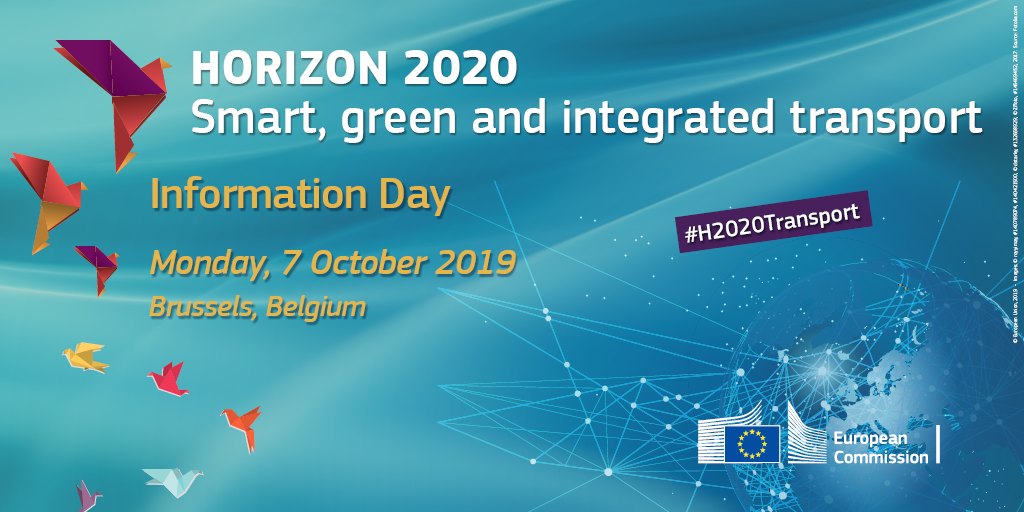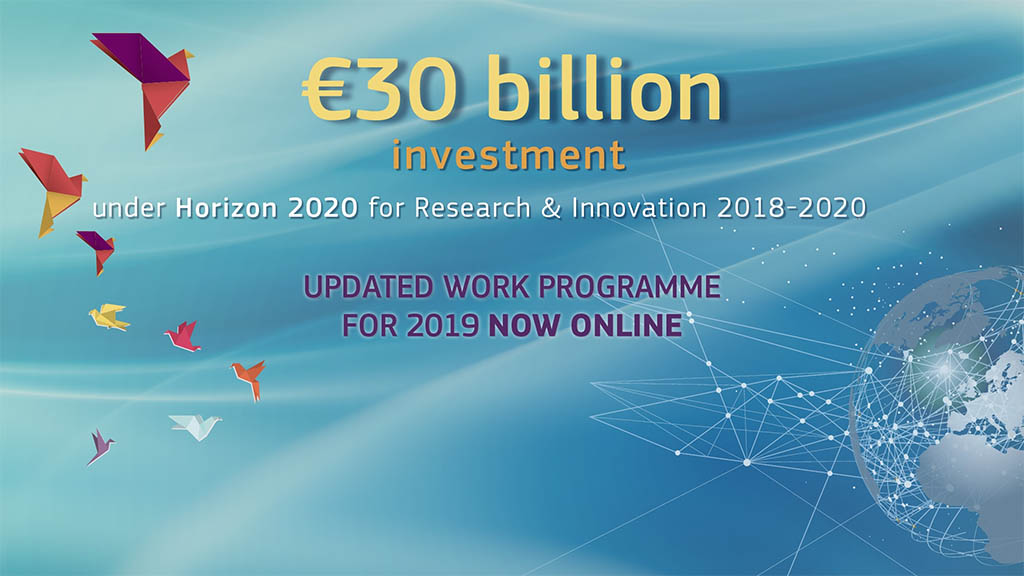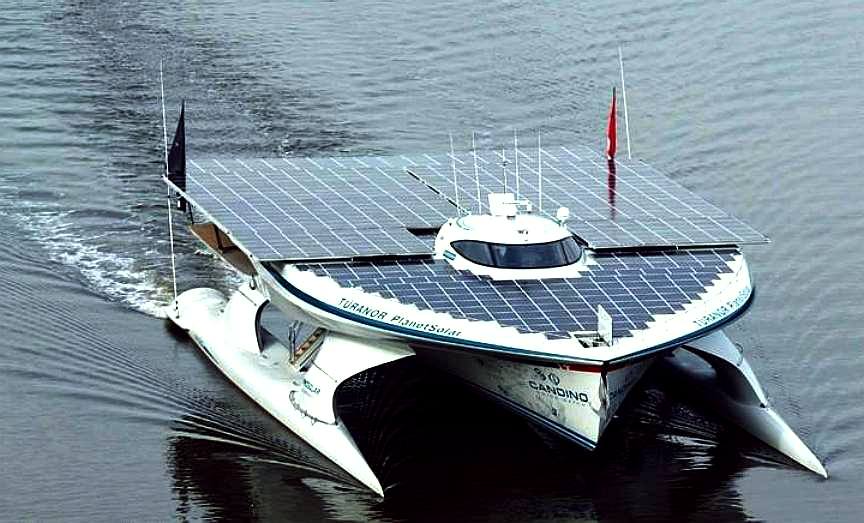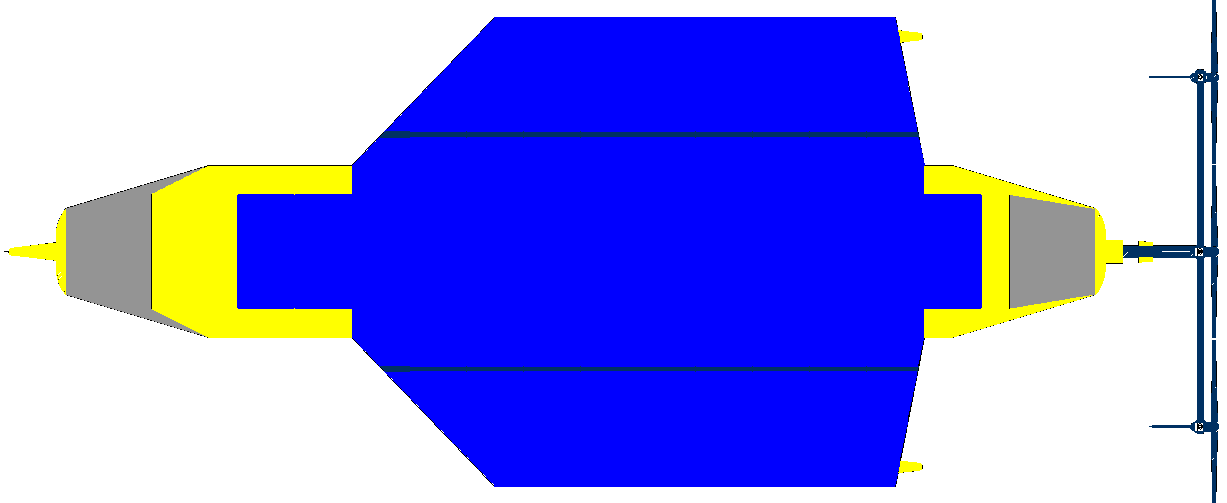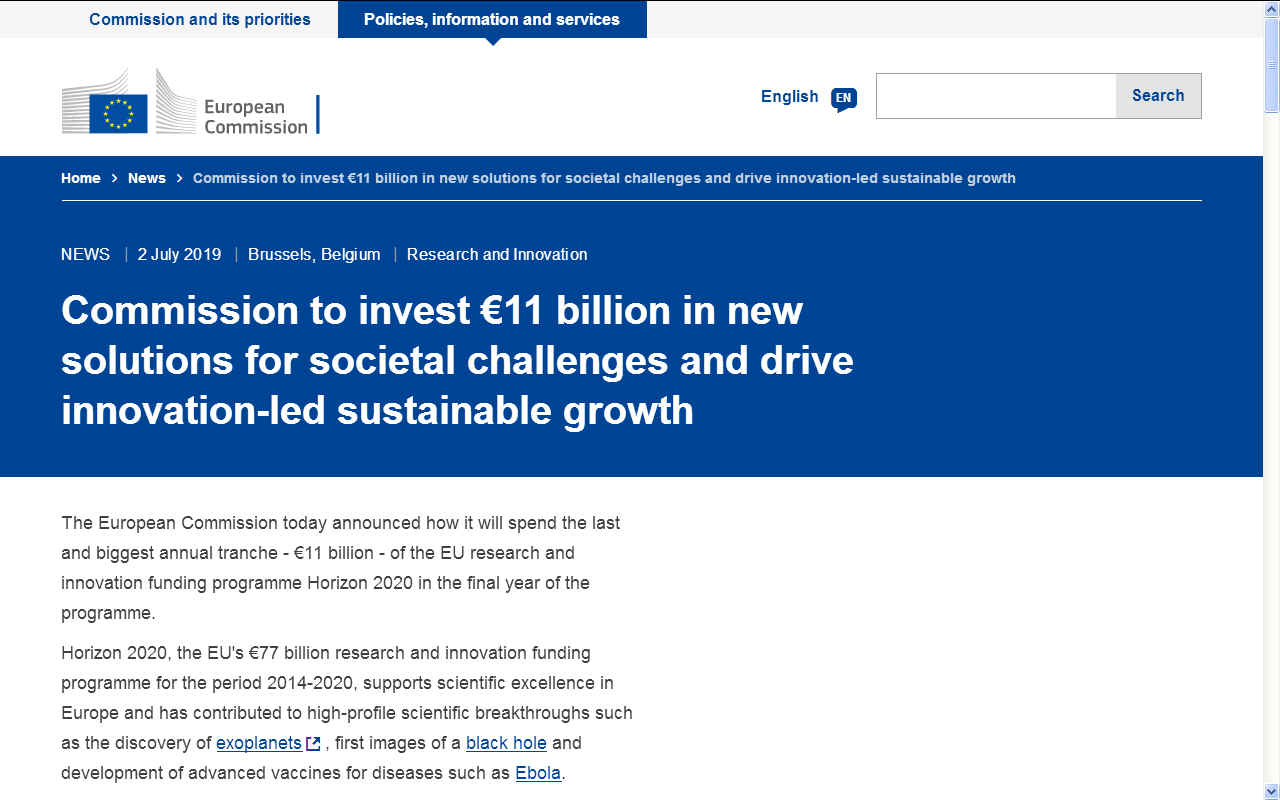|
HORIZON 2020 SMART GREEN TRANSPORT
Please use our A-Z INDEX to navigate this site where page links may lead to other sites
|
|
CLIMATE TARGETS - Transition to zero carbon transport will help the G20 and other United Nations members meet the greenhouse gas reduction targets before 2030.
This
2019 Horizon Transport info day will take place on Monday, 7 October 2019 from 09:30 to 15:00 CET in Brussels.
The
theme is mainly for road vehicles, though next generation
batteries applies to all vehicles using such energy storage
such as electric
yachts.
Programme
Questions and answers
Social media
Webstreaming
ABOUT THE TRANSPORT CHALLENGE
The Transport Challenge is allocated a budget of €6 339 million for the period 2014-2020 and will contribute to four key objectives, each supported by specific activities.
GUINNESS BOOK OF RECORDS - The first climate friendly blue water cruiser was the MS Turanor PlanetSolar (Switzerland) which circumnavigated the world in a westward direction from Monaco in 1 year 7 months and 7 days from 27 September 2010 to 4 May 2012. Why nobody has improved on the concept since then is a source of wonder.
VENUE
JULY 2 2019
The European Commission today announced how it will spend the last and biggest annual tranche - €11 billion - of the EU research and innovation funding programme Horizon 2020 in the final year of the programme.
Horizon 2020, the EU's €77 billion research and innovation funding programme for the period 2014-2020, supports scientific excellence in Europe and has contributed to high-profile scientific breakthroughs such as the discovery of exoplanets, first images of a black hole and development of advanced vaccines for diseases such as Ebola.
Today the Commission announced the budget plan for the year 2020 for Horizon 2020. Over the next year, the Commission will seek greater impact of its research funding by focusing on fewer, but crucial, topics such as climate change, clean energy, plastics, cybersecurity and the digital economy. It will also be geared towards shaping the future research and innovation landscape by preparing the way for Horizon Europe, the next framework programme (2021-2027).
An important novelty under Horizon Europe will be the European Innovation Council – a one-stop-shop for innovation funding to turn science into new business and accelerate the scale-up of companies. The European Innovation Council is already running in its pilot phase and will in 2020 benefit from a budget of €1.2 billion.
Carlos Moedas, Commissioner for Research, Science and Innovation, said:
Horizon 2020 is generating new knowledge and technologies, and has a strong economic impact. For every 100 euro we invest through Horizon 2020, we expect to add 850 euro to our GDP by 2030, creating millions of jobs for Europeans. That is why we have proposed €100 billion for the next Horizon Europe programme, to boost the EU's competitiveness, innovation capacities and scientific excellence.
Focusing on political priorities
This Work Programme will support the budget for 2018-2020 and the Commission’s political priorities, in the following areas:
- A low-carbon, climate resilient future: €3.7 billion - Circular economy: €1 billion - Digitising and transforming European industry and services: €1.8 billion - Security Union: €1 billion
In 2020, €206 million is earmarked for projects to transform sectors that are traditionally energy intensive into competitive, low-carbon and circular industries and to significantly lower their environmental footprint. €132 million will support the development and production in Europe of the next generation of batteries, as part of the drive towards a low-carbon, climate-resilient future. Ten new topics on plastics with a total budget of €135 million contribute in different ways to the EU Plastics Strategy. Artificial intelligence, which is at the core of today’s most promising breakthroughs, has a budget of €396 million and €116 million is earmarked for developing new capabilities for fighting and preventing cybercrime.
Boosting 'blue sky' research
At the same time, Horizon 2020 will continue to fund "curiosity-driven science" (often referred to as "blue sky science" or "frontier research"). The annual Work Programme of the European Research Council for 2020, adopted today, will enable support for excellent researchers with over €2.2 billion. Marie Skłodowska-Curie Actions, which fund fellowships for researchers at all stages of their careers, receive a boost with over €1 billion in total.
Enhancing international cooperation
This last Work Programme also strengthens international cooperation in research and innovation. It will invest over €550 million in 2020 in cooperation flagships in areas of mutual benefit. Examples include working with Africa on global health, food and nutrition security, with the US Canada and Japan on clean energy, and with China on food production, biotech, energy, natural resources and urbanisation.
Bridging to Horizon Europe
Since the beginning of its mandate, the Juncker Commission has been working hard to give Europe's many innovative entrepreneurs every opportunity to thrive. The Commission launched the first phase of the European Innovation Council, to turn Europe's scientific discoveries into businesses that can scale up faster. The EIC Accelerator pilot announced in March will test a grant and equity blended financing model, paving the way for a fully-fledged European Innovation Council in the next EU research and innovation framework programme, Horizon Europe.
In anticipation of the expected structure and content of Horizon Europe, €209 million brings together actions on food and natural resources. Co-creating methods and approaches are being tested through cross-cutting calls on interdisciplinary challenges such as Competitive, Low Carbon and Circular Industries. To trial ways of simplifying participants’ experience, the use of Lump-sum pilots will be further expanded throughout the work programme. In addition, policy areas with increased prominence in the Horizon Europe proposal are addressed, such as smart buildings and airports, and the microbiome.
Background
Horizon 2020 is the EU's biggest ever research and innovation framework programme with a budget of €77 billion over seven years (2014-2020). While most research and innovation activities are still underway or yet to start, the programme is delivering.
EU funded research has contributed to major discoveries like exoplanets, the Higgs boson and gravitational waves, first images of a black hole and at least 17 Nobel Prize winners received EU research funding prior or after their award (see factsheet on R&I success stories).
As of June 2019, Horizon 2020 has provided companies, in particular SMEs, with access to risk finance worth €19 264 million under the EU finance for innovators scheme (InnovFin). It has funded more than 24 500 grants in total to the tune of €42.8 billion, of which almost €7.1 billion went to SMEs. Over 5 000 ERC Principal Investigators in host organisations and over 45 000 fellows under the Marie Skłodowska-Curie Actions will receive almost €8.8 billion and €4.3 billion respectively.
In June 2018, for the budget period 2021-2027 the Commission proposed Horizon Europe, the next EU research and innovation programme with a budget of €100 billion. In March 2019 the European Parliament and the Council of the EU have reached a provisional agreement on Horizon Europe.
LINKS & REFERENCES
https://ec.europa.eu/inea/en/news-events/events/horizon-2020-transport-info-day-0
Please use our A-Z INDEX to navigate this site
|
|
|
This website is provided on a free basis as a public information service. copyright © Climate Change Trust 2019. Solar Studios, BN271RF, United Kingdom.
|
